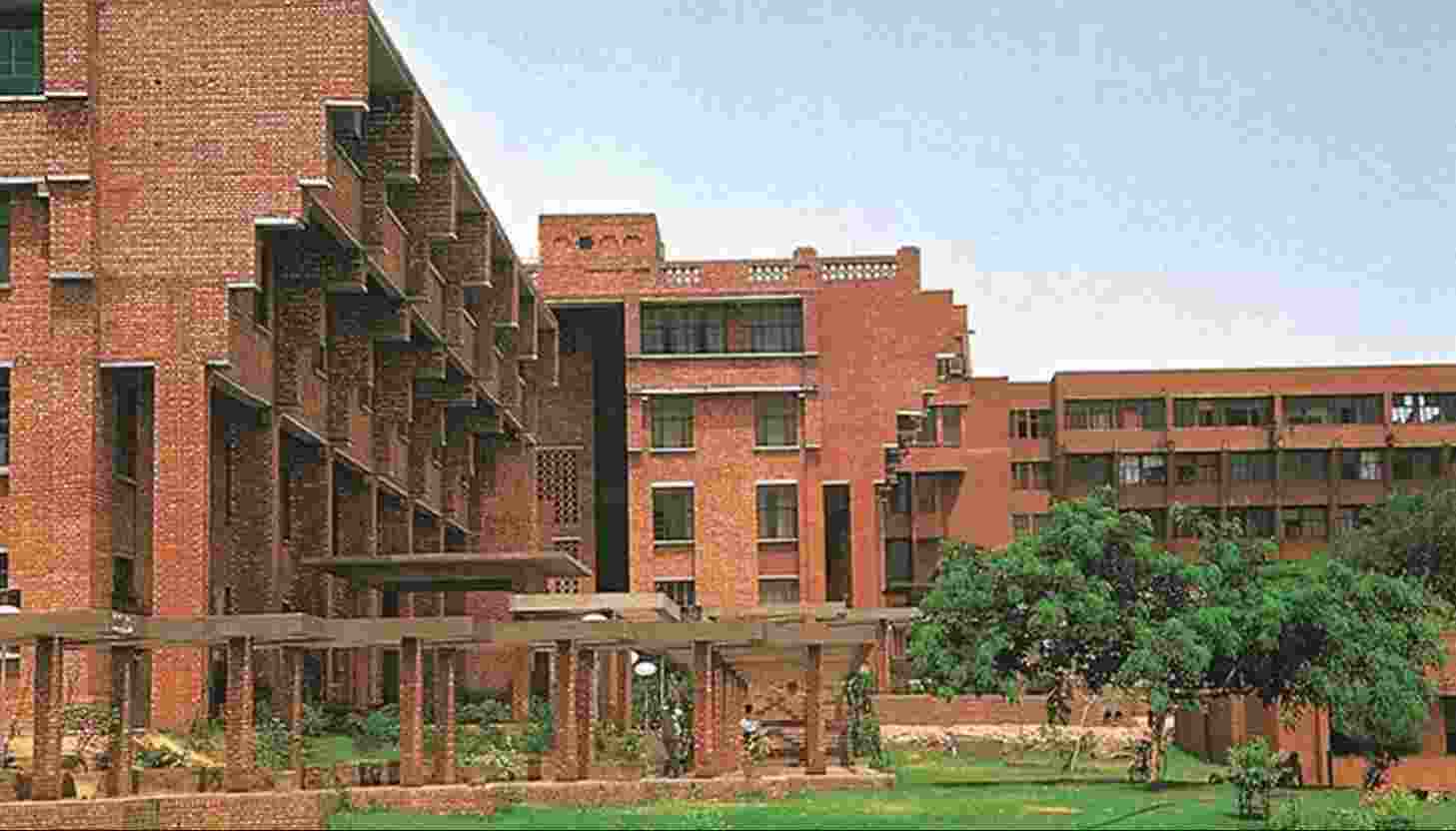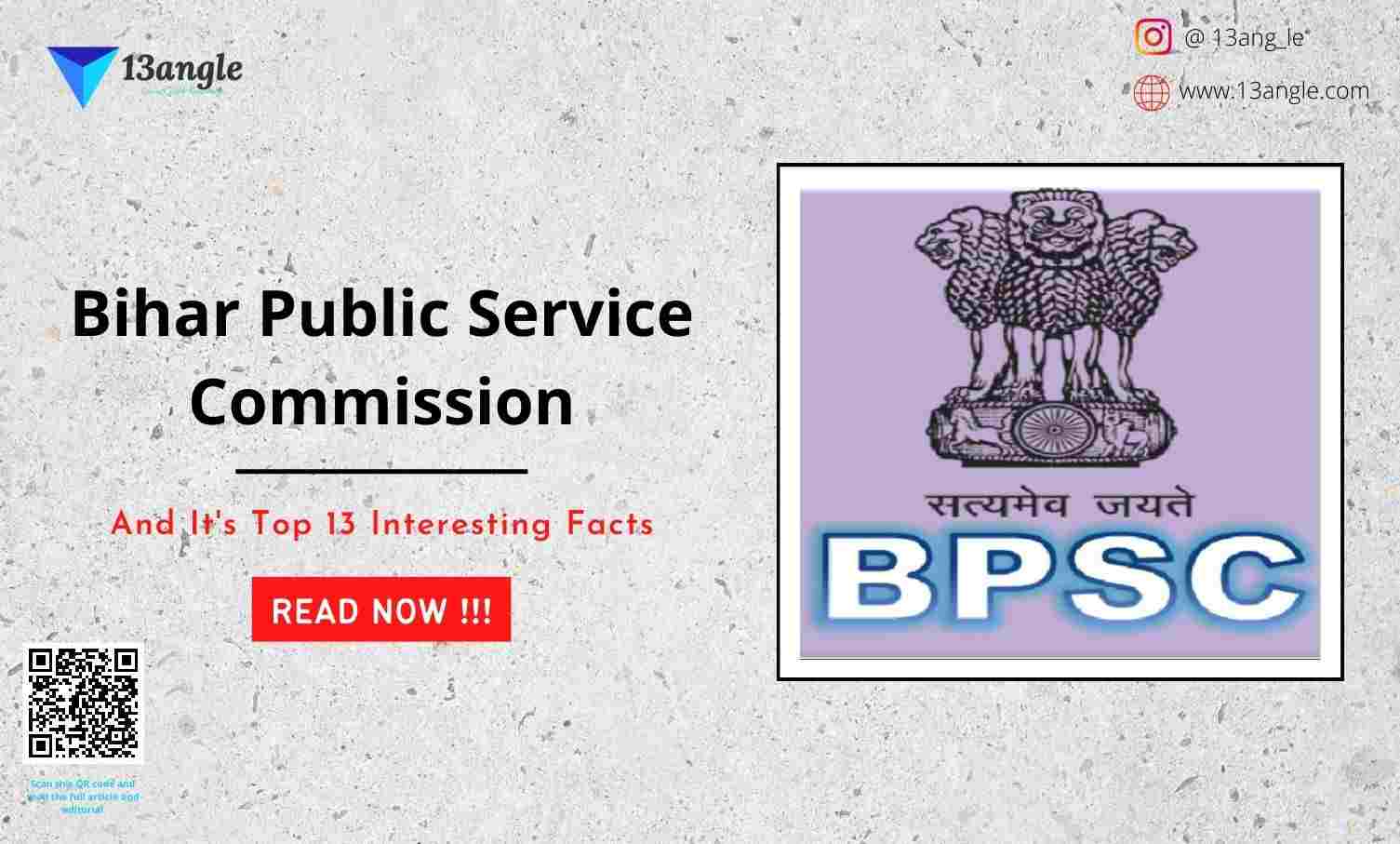
Introduction
Jawaharlal Nehru University (JNU) is a public central major research university which is in New Delhi, India. It was founded in 1969 and was named after India’s first Prime Minister, Jawaharlal Nehru. The university is well-known for its prestigious faculties and research emphasis on social sciences and applied sciences.
Jawaharlal Nehru University is India’s most prestigious university and a world-renowned centre for teaching and research, founded in 1966 by an act of Parliament.
Many faculty members and research scholars have received major national and international accolades for their academic efforts. Several academic associations are headed by the faculty. The government values our expertise, and many members of the faculty have served in various roles for the Indian government, including as ambassadors/high commissioners and members of major bodies such as the Planning Commission. Many of our professors have served or are now serving as Vice-Chancellors at other universities.
JNU has worked on research initiatives, conferences, and publications with universities all over the world. It has several current Memorandums of Understanding with foreign and national universities, and it regularly exchanges teachers and students with them. Some international degree programmes also have an Indian component, which they host.
In 2017, the President of India awarded JNU the Best University Award. The University Grants Commission (UGC) has designated several academic centres at the university as “Centres of Excellence.” The University Grants Commission has designated JNU as a “University of Excellence.” The University now has 10 Schools and four Special Centres.
History
Jawaharlal Nehru University was established in 1969 by an act of parliament. It was named after India’s first Prime Minister, Jawaharlal Nehru. The first vice-chancellor was G. Parthasarathy. Prof. Moonis Raza served as the institution’s first Chairman and Rector. On September 1, 1965, the then-Minister of Education, M. C. Chagla, introduced a bill in the Rajya Sabha to create Jawaharlal Nehru University. During the subsequent discussion, Bhushan Gupta, a member of parliament, stated that this should not be another university. New faculties should be introduced, including scientific socialism, and one thing that this university should ensure was to keep noble ideas in mind and provide access to students from weaker sections of society.
The JNU Bill was enacted by the Lok Sabha on November 16, 1966, and the JNU Act comes into force on April 22, 1969.
The Indian School of International Studies was combined with the Jawaharlal Nehru University in June 1970. Following the combination, the prefix “Indian” was dropped from the name of the school and it became the School of International Studies of the Jawaharlal Nehru University.
Rankings
JNU was ranked no. 3 among all institutions in India by the National Institutional Ranking Framework, Government of India, in 2016 and no. 2 in the years 2017-2020, with a Grade Point of 3.91 (on a scale of 4) by the National Assessment and Accreditation Council (NAAC).
JNU has been ranked as India’s second-best university and eighth-best institute in the National Institution Ranking Framework (NIRF) 2020 rankings for higher education institutes.
JNU Initiatives
- COVID-19 @ JNU
- Global Initiative of Academic Networks @ JNU (GIAN)
- Human Resource Development Centre (HRDC)
- Institutional Biosafety Committee (IBSC)
- Institutional Ethics Review Board (IERB)
- Institution’s Innovation Council (IIC)
- Intellectual Property Management Cell (IPMC)
- Internal Quality Assurance Cell (IQAC)
- Jawaharlal Nehru Institute of Advanced Study (JNIAS)
- Jan Jan Jnu
- Linguistic Empowerment Cell (LEC)
- Mathematical and Computational Empowerment Cell (MCEC)
- National Academic Depository (NAD)
- Transdisciplinary Research Cluster (TRC)
Facilities Are Provided To Students By The University
- Anti-Ragging Squad
- Clubs
- Financial Aid
- Fellowships/Scholarships
- Instructions for Zero Semester
- Intl. Students Association
- JNUSU
- Jobs for Students
- National Cadet Core (NCC)
- National Service Scheme(NSS)
- National e-Scholarship Portal
- No Dues Status
- No Objection Certificate (NOC)
- Online Counselling
- Procedure for Univ. Certificate
- Percentage Conversion Certificate
- Prime Minister’s Research Fellows (PMRF) Scheme
- Placement Cell
- Registered Students
- New Students Registration
- Student Registration
- Student Activities
- Student Achievement
- AICTE/MHRD Online Skill Test
- CCMT-CCMN-CSAB-DASA
Sl. No | Name | Current profession |
1. | Shri Vijay Kumar Saraswat | Chancellor |
2. | Prof. Santishree Dhulipudi Pandit | Vice-Chancellor |
3. | Prof. Ajay Kumar Dubey | Rector |
4. | Prof. Sudheer Pratap Singh | Dean of Students |
5. | Prof. Jayant K. Tripathi | Director of Admissions and Controller of Examinations |
6. | Prof. Ravikesh | Registrar |
7. | Shri Anup Kuksal | Acting Finance Officer |
Recognized Institutions
- The following prestigious institutions around the country have received recognition and accreditation from JNU. This has added to the University’s actual national identity. Representatives from these institutions sit on several JNU academic and statutory boards. Similarly, JNU academics are members of these institutions’ academic bodies.
1. Recognized Defence Institutions
| Sl. No. | Name of the Institutions |
| 1. | National Defence Academy (NDA) Khadakwasla, Pune |
| 2. | Army Cadet College (ACC) Indian Military Academy Dehradun |
| 3. | Military College of Telecommunication Engineering (MCTE) Mhow |
| 4. | College of Military Engineering (CME) Pune |
| 5. | Military College of Electronics & Mechanical Engineering (MCEME) Secunderabad |
| 6. | Indian Naval Academy (INA) Ezhimala, Kerala |
2. Recognized Research Institutions
JNU Admission 2022 Important Date
Event | Date |
Application form starts JNU admission last date Entrance test Result date Merit list Interview (only for some courses) Counseling | 6 April 2022 22 May 2022 10 July 2022 15 July 2022 24 July 2022 2 August 2022 8 August 2022 |
For PhD Courses
Event | Date |
Application form starts JNU admission last date Entrance test Result date Merit list Interview Counseling | 1st week of June 2022 4th week of June 2022 1st week of July 2022 2nd week of July 2022 3rd week of July 2022 1st week of August 2022 2nd week of August 2022 |
Courses Offered By JNU
1. Undergraduate Programmes:-
- B.A.(Hons.)1st year in Arabic (ARBU)
- B.A.(Hons.)1st year in Chinese (CHNU)
- B.A.(Hons.)1st year in French (FRNU)
- B.A.(Hons.)1st year in German (GERU)
- B.A.(Hons.)1st year in Japanese (JAPU)
- B.A.(Hons.)1st year in Korean (KORU)
- B.A.(Hons.)1st year in Persian (PERU)
- B.A.(Hons.)1st year in Pushto (PUSU)
- B.A.(Hons.)1st year in Russian (RSNU)
- B.A.(Hons.)1st year in Spanish (SPNU)
- B.A.(Hons.)2nd year in Arabic (ARBS)
- B.A.(Hons.)2nd year in Chinese (CHNS)
- B.A.(Hons.)2nd year in French (FRNS)
- B.A.(Hons.)2nd year in German (GERS)
- B.A.(Hons.)2nd year in Japanese (JAPS)
- B.A.(Hons.)2nd year in Korean (KORS)
- B.A.(Hons.)2nd year in Pashto (PUSS)
- B.A.(Hons.)2nd year in Persian (PERS)
- B.A.(Hons.)2nd year in Russian (RSNS)
- B.A.(Hons.)2nd year in Spanish (SPNS)
2. Postgraduate Programmes:-
- Integrated M.Sc-Ph.D programme in Computational & Integrative Sciences (CISM)
- Integrated M.Sc-Ph.D programme in Molecular Medicine (CMMM)
- M.A. in Ancient History (ANCM)
- M.A. in Arabic (ARBM)
- M.A. in Arts & Aesthetics (SAAM)
- M.A. in Chinese (CHNM)
- M.A. in Development and Labour Studies (DLSM)
- M.A. in Economics (ECOM)
- M.A. in Economics (with specialisation in World Economy) (EILM)
- M.A. in English (ENGM)
- M.A. in French and Francophone Studies (FRNM)
- M.A. in Geography (GEOM)
- M.A. in German Literature (GRLM)
- M.A. in German Translation/Translation & Interpretation (GRTM)
- M.A. in Hindi (HNDM)
- M.A. in International Relations and Area Studies (IRAM)
- M.A. in Japanese (JAPM)
- M.A. in Korean (KORM)
- M.A. in Linguistics (LINM)
- M.A. in Medieval History (MEDM)
- M.A. in Modern History (MODM)
- M.A. in Persian (PERM)
- M.A. in Philosophy (SPHM)
- M.A. in Political Science (POLM)
- M.A. in Politics (with specialisation in International Studies) (PISM)
- M.A. in Russian (RSNM)
- M.A. in Sanskrit (SANM)
- M.A. in Sociology (SOCM)
- M.A. in Spanish (SPNM)
- M.A. in Urdu (URDM)
- M.Sc. in Environmental Sciences (SESM)
- M.Sc. in Life Sciences (SLSM)
- M.Sc. in Physics (SPSM)
- MBA in ABVSME
3. PhD programmes:-
- M.Phil. in Portuguese (PRTP)
- M.Phil./Ph.D. in African Studies (AFSP)
- M.Phil./Ph.D. in Ancient History (ANCP)
- M.Phil./Ph.D. in Arabic (ARBP)
- M.Phil./Ph.D. in Canadian Studies (CANP)
- M.Phil./Ph.D. in Chinese Studies (CHIP)
- M.Phil./Ph.D. in Chinese (CHNP)
- M.Phil./Ph.D. in Cinema Studies (CNSP)
- M.Phil./Ph.D. in Comparative Politics and Political Theory (CPTP)
- M.Phil./Ph.D. in Computer & Systems Sciences (SCSP)
- M.Phil./Ph.D. in Diplomacy and Disarmament (DADP)
- M.Phil./Ph.D. in Discrimination and Exclusion Studies (SDEP)
- M.Phil./Ph.D. in Economic Studies & Planning (ECOP)
- M.Phil./Ph.D. in Economics (ECNP)
- M.Phil./Ph.D. in Educational Studies (EDUP)
- M.Phil./Ph.D. in English (ENGP)
- M.Phil./Ph.D. in European Studies (EUPP)
- M.Phil./Ph.D. in French (FRNP)
- M.Phil./Ph.D. in Geography (GEOP)
- M.Phil./Ph.D. in German (GERP)
- M.Phil./Ph.D. in Hindi Translation (HTLP)
- M.Phil./Ph.D. in Hindi (HNDP)
- M.Phil./Ph.D. in Indo-Pacific Studies (South-East Asia/South-West Pacific) (IPSP)
- M.Phil./Ph.D. in Inner Asian Studies (IASP)
- M.Phil./Ph.D. in International Legal Studies (ILGP)
- M.Phil./Ph.D. in International Organisation (ORGP)
- M.Phil./Ph.D. in International Politics (INPP)
- M.Phil./Ph.D. in International Trade & Development (ITDP)
- M.Phil./Ph.D. in Japanese Studies (JPIP)
- M.Phil./Ph.D. in Japanese (JAPP)
- M.Phil./Ph.D. in Korean Studies (KOIP)
- M.Phil./Ph.D. in Korean (KORP)
- M.Phil./Ph.D. in Latin American Studies (LAMP)
- M.Phil./Ph.D. in Law & Governance (CLGP)
- M.Phil./Ph.D. in Life Sciences (SLSP)
- M.Phil./Ph.D. in Linguistics (LINP)
- M.Phil./Ph.D. in Media Studies (CMSP)
- M.Phil./Ph.D. in Medieval History (MEDP)
- M.Phil./Ph.D. in Modern History (MODP)
- M.Phil./Ph.D. in North East India Studies (NESP)
- M.Phil./Ph.D. in Persian (PERP)
- M.Phil./Ph.D. in Philosophy (SPHP)
- M.Phil./Ph.D. in Political Geography (POGP)
- M.Phil./Ph.D. in Political Studies (POLP)
- M.Phil./Ph.D. in Population Studies (POPP)
- M.Phil./Ph.D. in Programme in Social Sciences in Health (CSMP)
- M.Phil./Ph.D. in Research Area I(ONEP)
- M.Phil./Ph.D. in Research Area II(TWOP)
- M.Phil./Ph.D. in Research Area III(THRP)
- M.Phil./Ph.D. in Research Area IV(FORP)
- M.Phil./Ph.D. in Russian & Central Asian Studies (RCAP)
- M.Phil./Ph.D. in Russian (RSNP)
- M.Phil./Ph.D. in Sanskrit (SANP)
- M.Phil./Ph.D. in Social Systems (SOCP)
- M.Phil./Ph.D. in South Asian Studies (SASP)
- M.Phil./Ph.D. in Spanish (SPNP)
- M.Phil./Ph.D. in Studies in Science Policy (SSPP)
- M.Phil./Ph.D. in Tamil (TAMP)
- M.Phil./Ph.D. in Theatre and Performance Studies (TPSP)
- M.Phil./Ph.D. in United States Studies (USSP)
- M.Phil./Ph.D. in Urdu (URDP)
- M.Phil./Ph.D. in Visual Arts (VSAP)
- M.Phil./Ph.D. in West Asian Studies (WASP)
- M.Phil./Ph.D. in Women Studies (WSPP)
- M.Tech/Ph.D. in Computer & Systems Sciences (MTCP)
- Master of Computer Applications (MCAM)
- MPH/Ph.D. in Programme in Community Health (MPHP)
- Pre-Ph.D./Ph.D. in Nanosciences (NNSP)
- Pre-Ph.D/Ph.D. in Biotechnology (SBTP)
- Pre-Ph.D/Ph.D. in Chemical Science (CHEP)
- Pre-Ph.D/Ph.D. in Computational Biology & Bioinformatics (CBBP)
- Pre-Ph.D/Ph.D. in Mathematical Science (MATP)
- Pre-Ph.D/Ph.D. in Molecular Medicine (CMMP)
- Pre-Ph.D/Ph.D. in Physical Science (PHYP)
4. Certificate And Diploma Programmes:-
- Advance Diploma in Mass Media in Urdu
- Advance Diploma in Pushto
- Certificate programme in Bahasa Indonesia
- Diploma in Bhasha Indonesia
- Certificate programme in Mongolian
- Certificate programme in Urdu
- Certificate programme in Pali
- Certificate programme in Computational Linguistic
Controversies
1. Anti- National slogans raised by JNU students
- On the 9th of February 2016, some students at Jawaharlal Nehru University (JNU) protested on campus against the capital punishment meted out to Afzal Guru, the 2001 Indian Parliament attack convict, and Kashmiri separatist Maqbool Bhat, whom a later investigation described as “outsiders to the University wearing masks” who shouted “anti-India” slogans. Many people, including political leaders and JNU students, were critical of the chants. After 4 days of this incident, Kanhaiya Kumar was arrested.
2. JNUSU president’s parents said he is a victim of Hindutva politics
- On 13 February 2016, Kanhaiya Kumar, the president of the Jawaharlal Nehru University Students’ Union, was detained on a charge of sedition a day after his parents in Bihar declared their son is not anti-national and is being victimized because he opposes Hindutva politics. “My son is not anti-national in the least.” He has no intention of adopting an anti-nationalist philosophy.
3. Massive Anti-Modi Student Protests
- Students protested the Modi government’s attacks on academic freedoms across India. When the Modi government detained Kanhaiya Kumar, the head of the student union at Delhi’s Jawaharlal Nehru University, massive protests erupted (JNU).
4. Burhan Wani is praised by JNU student Umar Khalid
- “I don’t mind falling as long as someone else picks up my pistol and continues to shoot. These were Che Guevara’s words, but they could have also been Burhan Wani’s “Was mentioned in a Facebook post that he later deleted.
5. Clash between students
- At least sixteen persons were injured in a clash between two student groups Over Non-Vegetarian Food in Jawaharlal Nehru University (JNU) campus in Delhi.
JNU Alumni List
Name | Notability |
P.Jaya Kumar Srijit Mukherji Swara Bhaskar Archishman Sarker Bahuram Bhattarai Ali zeiden Abdul Sattar Murad Ajit Seth Amitabh Kant Amitabh Rajan Arvind Gupta Ashok Tanwar Muhammad Muhsin Dipsita Dhar Chandan Kumar Lê Lương Minh Jyotindra Dixit Nirmala Sitharaman Palagummi Sainath Sitaram Yechury Venu Rajamony | Filmmaker, screenwriter, author. Bengali film director. Bollywood actress. Indian art historian. 36th prime minister of Nepal. 24th prime minister of Libya. Minister of Economy, Afghanistan. 30th cabinet Secretary of India. CEO of NOTI Aayog. Home Secretary of Maharashtra, Chairman of Reserve Bank of India Services Board. Deputy National Security Advisor of India. Former President of Indian youth congress. Politician communist party of India, MLA- Kerala Legislative Assembly. Student Activist. Student Activist. 13th Secretary-General of ASEAN 2nd National Security Adviser Former Defense Minister of India, Finance Minister, India Renowned journalist, Ramon Magsaysay Laureate. General Secretary, Communist Party of India (Marxist). IFS Officer, Former Press Secretary to President of India, Former Indian Ambassador to the Netherlands. |
Top 13 Interesting Facts About JNU
The JNU was established in 1969 and named after, India’s first Prime Minister.
The Indian School of International Studies was combined with the Jawaharlal Nehru University in June 1970. Following the combination, the prefix “Indian” was dropped from the name of the school and it became the School of International Studies of the Jawaharlal Nehru University.
It was awarded the “Visitor’s Award” for “Best University” in 2017 by the President of India.
On the campus of Jawaharlal Nehru University, there are numerous canteens: cafeterias and dining halls where tea/coffee and a variety of snack options are available. The canteen, on the other hand, provides vegetarian and non-vegetarian meals to students and staff.
Jawaharlal Nehru University is known for its leading faculties and research emphasis on social sciences and applied sciences.
In this university, the academic departments are divided into 20 Schools and Centres.
JNU was the first to provide foreign language classes as part of a five-year MA degree.
At the Master’s level, where most Schools begin their academic programme, instruction is generally directed toward single disciplines (though all M.A. students are encouraged to take a few courses outside their area), but disciplinary boundaries become more permeable at the research level.
The work of JNU Ph. D. students in overlapping or borderline areas – such as between environment and literary studies, economics and science, sociology and aesthetics, or linguistics and biology – is not unusual.
Apart from its regular faculty, JNU has established Rajiv Gandhi Chairs, Appadorai Chairs, Nelson Mandela Chairs, Dr Ambedkar Chairs, RBI Chairs, SBI Chairs, Sukhomay Chakravarty Chairs, Environmental Law Chairs, Greek Chairs, Tamil Chairs, and Kannada Chairs over the years.
The university provides four research publications with a high level of academic recognition in India and internationally. Studies in History, International Studies, JSL (the Journal of the School of Language, Literature, and Culture Studies), and Hispanic Horizons are the publications in question. Aside from the four periodicals mentioned above, some members of the JNU faculty also edit national and international journals.
In academic initiatives, conferences, and publications, Jawaharlal Nehru University has partnered with universities all around the world. It has several current MoU with foreign and national universities, and it regularly exchanges teachers and students with them. Some international degree programmes also have an Indian component, which they host.
JNU students raised anti-national slogans.

For deep details, you can read the full article. & Editorial Click the link below :






